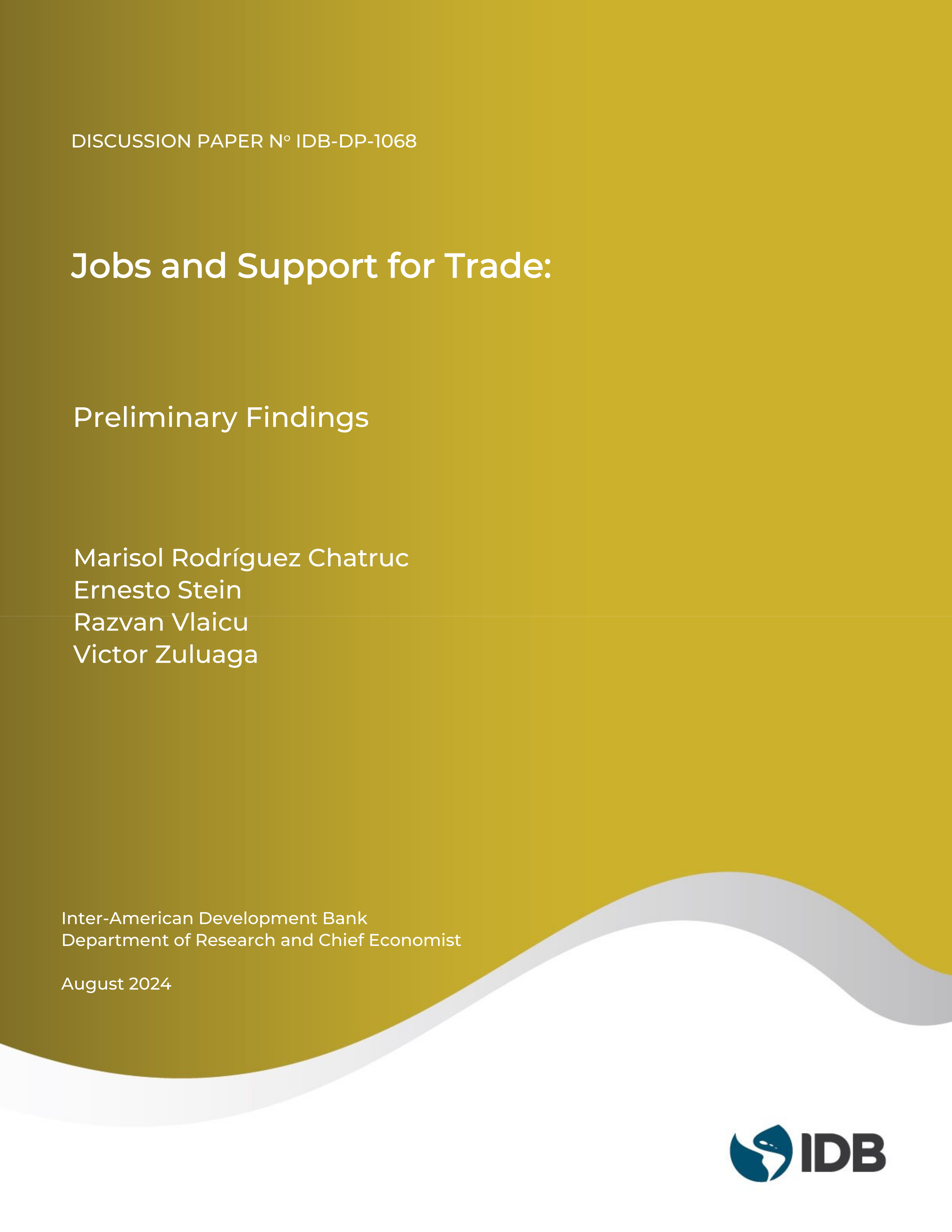Jobs and Support for Trade: Preliminary Findings
Date issued
Aug 2024
Subject
International Trade;
Integration and Trade;
Labor;
Unemployment Rate;
Small Business;
Economy;
Conflicts Resolution;
Labor Force
JEL code
F13 - Trade Policy • International Trade Organizations;
D72 - Political Processes: Rent-Seeking, Lobbying, Elections, Legislatures, and Voting Behavior
Category
Discussion Papers
International trade increases aggregate welfare but also creates winners and losers, which makes free trade a contentious political issue. Recent research has established that individuals are more sensitive to anti-trade information about the prospect of employment loss than to pro-trade information regarding lower product prices and increased variety. This means that we know what works to decrease support for trade, but it is still unclear what works to increase it. In this paper, we fill this gap by studying how individual attitudes and beliefs change in response to information regarding employment losses (in import-competing sectors), to information regarding employment gains (in export-oriented sectors), and to information regarding the possibility of compensation to those displaced by trade. To this end, we conducted a large scale survey experiment in eighteen Latin American countries using nationally representative samples. Results indicate that anti-trade information reduces support for trade even if compensation to losers is mentioned and that pro-trade messages increase support only if they are worded so that a job gain is perceived. Belief updating about the consequences of increased trade on employment seems to be a relevant mechanism. Our findings have important implications on what types of messaging work to increase support for trade.
NO



